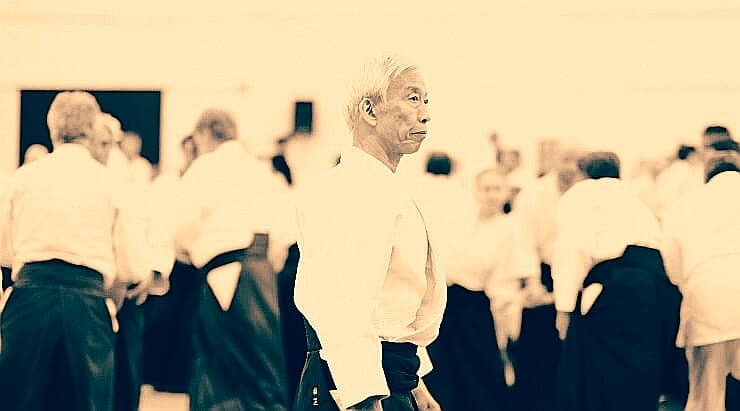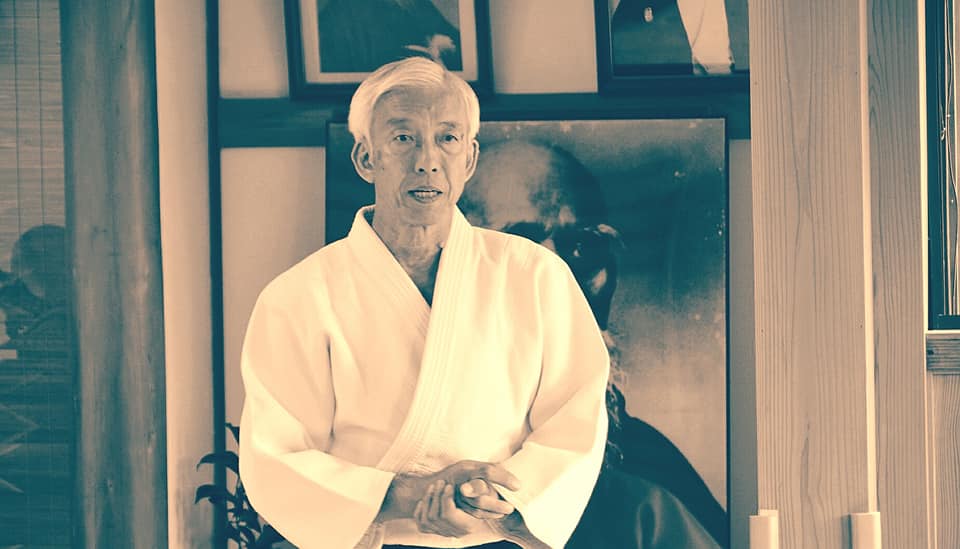Q-During the 1970s there were a number of people who left the Aikikai organization for various reasons, but who have later wanted to come back and have been allowed to do so. It seems to me that that kind of broad-minded acceptance was something the former Doshu Kisshomaru felt to be extremely important. As someone very close to him, I wonder if you can tell us anything about the background of that attitude on his part?
E-The founder always said that “there is no expulsion (hamon) from aikido.” There are those who have left the Aikikai, but it was never because anyone told them to leave. My father had the same attitude. If people who have left the organization eventually want to come back, there is no reason to prevent them from doing so.
The only caveat might be that those who have left the organization for a time and then returned will inevitably have some influence on those who have stayed on the entire time. But aikido is not about eliminating or removing the other, it’s about building harmony, about bringing people together. These are the very basis of aikido, and this was undoubtedly the kind of thinking that formed my father’s response as Doshu to such situations.

Q-By now aikido has been practiced outside of Japan for over forty years, and among those practitioners abroad there are quite a few who began their study under an Aikikai teacher in Japan, but who have since formed their own independent groups. But there are also those who have come to Japan wanting to develop closer ties with the Aikikai. How do you think such situations should be handled?
E-Under the traditional Japanese way of thinking, the most correct approach would be to go through the Japanese teacher who taught them originally, but for some groups past circumstances have made this impossible.
The Aikikai now includes an International Affairs Department. People wishing to develop or re-develop such a relationship with the Aikikai should submit their request, along with all the relevant information, to that department, after which we will be able to see what can be done.
Each case is different, of course, but as long as the proper process is observed, I think most such groups will be able to return to the Aikikai.
Source: Facebook/Aikido



